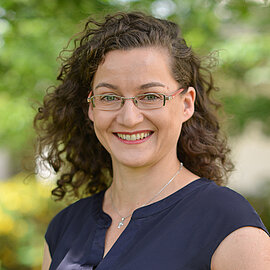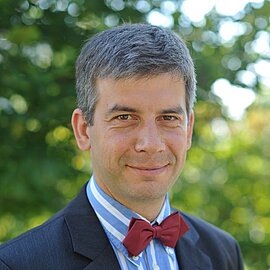IAMO Forum 2022 took place in Halle (Saale) from 22–24 June. Over the three-day conference, 154 participants came together to discuss the effects of the Covid-19 pandemic and the war in Ukraine on rural development in transition economies in regions including Southeast Europe and Central and Southeast Asia. Discussions primarily focused on how agricultural systems can better react to crises in the future.
Agricultural production and trade may have come out of the Covid-19 pandemic relatively unscathed, but rural regions are nevertheless feeling the effects. For example, food prices are rising and job opportunities are scarce for returning migrants. At this year’s IAMO Forum “Enhancing resilience in a post-pandemic era: challenges and opportunities for rural development”, 154 participants from 24 countries came together in 22 sessions to look at how the pandemic has affected rural regions and to discuss strategies for improving the resilience of agricultural systems in the face of future crises.
William Seitz of the World Bank explained that rural areas were severely affected by food supply chain disruptions, changing market demand and rising transaction costs resulting from the pandemic. Surveys conducted in four Central Asian countries revealed that it was predominantly people in the informal sector who lost their jobs during the pandemic, and this mainly affected the poorest households. Subsequent economic recovery has only partially made up for any losses.
OECD analyst Stephan Hubertus Gay pointed out that there has been a series of overlapping crises: the Covid-19 pandemic, the war in Ukraine, the growing effects of climate change and African swine fever, which has threatened livestock production in many countries. He also stressed that it is the poorest populations who suffer the most from sharply rising food prices. Future food security therefore depends on income growth among these groups.
Fatma Nil Döner, assistant professor at Istanbul Medeniyet University, looked at how lockdowns and the 2008/2009 financial crisis both affected incomes from tourism in the Mediterranean region. She emphasised the adaptability of rural households, which often grew their own food to compensate for lost income.
According to Miranda Meuwissen from Wageningen University in the Netherlands, farmers alone should not be responsible for creating adaptable, resilient and sustainable agricultural systems. Rather, the entire food system must be transformed. Everyone involved has their part to play, and this includes retailers, processors, administrators and consumers. New technologies, diversified income opportunities in rural areas and a better balance between economic and environmental goals are potential areas for local development strategies.
In the panel discussion, representatives from international organisations presented their strategies to respond to the crises. In addition to digital transformation, they highlighted the importance of bottom-up approaches over classic top-down measures. This would allow rural actors to be more actively involved.
The conference was organised by the Department of Agricultural Policy at IAMO and the International Food Policy Research Institute (IFPRI) in the USA. It was sponsored by the German Research Foundation (DFG) and Rentenbank.


